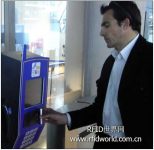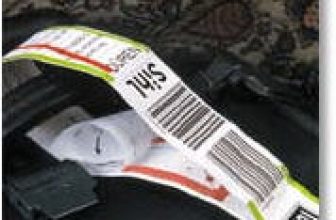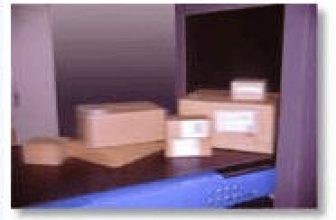
Air France uses NFC RFID technology to speed up boarding, security and other processes
[ad_1]
Nice C?te d’Azur, France, is now testing the use of NFC RFID technology to eliminate the application of plastic membership cards, speeding up and simplifying passenger identification, security checks, and rewarding airport membership points.
The airport is cooperating with IT service providers Amadeus, Air France and IER (focusing on the development of boarding control hardware and software) for this pilot project. Approximately 50 passengers who frequently travel on Air France’s Nice-Paris Orly route participated in the test, using NFC phones as their e-tickets and membership cards. Some participants rented their NFC Nokia 6212 mobile phones at the airport, while others stuck a sticker with an NFC RFID tag on their mobile phones.

Pass & Fly kiosk
In addition, Air New Zealand’s assistance at EIR also adopted RFID technology to automate the boarding process in November 2008.
According to Agnes Henry Scalliet, Customer Relationship Management Marketing Manager for Nice C?te d’Azur Airport, the two sets are not the same. “The Air New Zealand system does not use NFC mobile phones, nor does it store e-tickets in the mobile phones. She added that the New Zealand system is used for a specific route, and Pass & Fly is an airport project that can support multiple routes.
The Pass & Fly pilot project was launched in April this year and will last until the end of October. At that time, all partners will explore the possibility of commercialization of this system.
Nice C?te d’Azur Airport started looking for a plan last year, hoping to help members more easily collect points for airport use. Henry Scalliet stated that the membership program is to help airports establish connections with passengers and better understand their needs. Currently, passengers who have not participated in the pilot program must bring their airport membership card-a smart card with biometrics-to a service kiosk and deposit the points they earn into their account; passengers participating in this project do not need to use the service kiosk to collect points .
Other advantages for passengers using the Pass & Fly system include the use of fast security check lanes. Usually all the information printed on the boarding card is electronically stored on the mobile phone software, which is obtained through the NFC module embedded in the mobile phone.
In order to use the NFC system, passengers can register in any Air France standard registration mode, such as surfing the Internet through a computer or mobile phone, registering at the registration desk or a self-service kiosk at the airport. Then, the passenger came to a Pass & Fly RFID reader at the airport, where the pre-registered mobile phone was recognized, and the system downloaded the e-ticket to the mobile phone.
At the kiosk, the passenger showed his mobile phone to an RFID reader for identification, and uploaded his e-ticket to a computer operated by security personnel. The e-ticket is then displayed on the computer screen so that security personnel can better view it. At the boarding gate, passengers show their mobile phones in front of another Pass & Fly kiosk, which prints out the boarding card with seat allocation.
Henry Scalliet estimates that the system can help passengers save 15-20 minutes per flight. In addition, NFC mobile phones can be recognized even when the phone is turned off or the battery is exhausted.
Amadeus develops software and departure control systems for mobile phones, as well as airport readers that display important passenger information. IER installed NFC kiosks and RFID readers connected to the Air France passenger management system.
According to Henry Scalliet, the airport is considering expanding this system so that passengers can use their mobile phones, for example, to enter VIP lounges. If the NFC reader is installed in an airplane or an exit in the future, the system can provide a printed receipt to the passengers to confirm that they are actually taking the airplane.
[ad_2]





